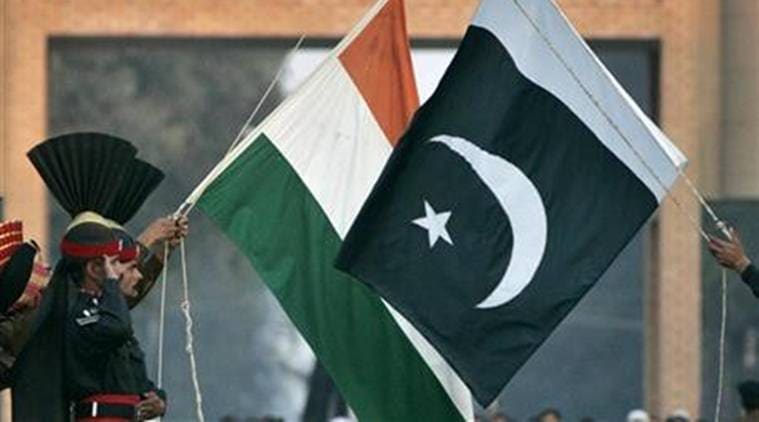View from the Neighbourhood: Delhi’s U-turn
A weekly look at the public conversations shaping ideas beyond borders — in the Subcontinent.
Published: September 24, 2018 12:24:25 am

Talks between India and Pakistan are once again suspended as New Delhi cancelled the scheduled informal meeting between Pakistan Foreign Minister Shah Mehmood Qureshi and his Indian counterpart, Sushma Swaraj. (Representational Image)
New Delhi’s decision to cancel the scheduled informal meeting between Pakistan Foreign Minister Shah Mehmood Qureshi and his Indian counterpart, Sushma Swaraj, has been described by Dawn as “confusing and disappointing”. India cancelled the proposed talks after a fresh round of violence by insurgents in Kashmir, with the external affairs ministry spokesperson citing Pakistan’s “evil agenda” as the reason. In its September 23 editorial, Dawn says: “Extraordinary too is the intemperate and undiplomatic language used by India to attack Prime Minister Imran Khan personally. Mr Khan has answered in a similar vein via his official Twitter account to India’s jibe against him, and it is difficult to see how the two prime ministers will be able to move past the sudden personal animus that appears to have broken out. A moment of hope has been gratuitously extinguished by India.”
The editorial also cautions the government against cutting off all possibility of dialogue. It proposed that “Perhaps the approach in the near term should focus on back-channel contacts such as between the countries’ national security advisers”. It adds: “Unfortunate and bizarre as the eventual Indian response to Pakistan’s offer for dialogue has been, it remains true that talks are the only rational path that the two South Asian rivals can take.”
Without dignity
In his September 19 column in Dawn, journalist and peace rights activist I A Rehman writes about the right to dignity, enshrined in Pakistan’s constitution in Article 14(3), and as such, is inviolable even by law. But, as the admonishment of the National Accountability Bureau (NAB), by the chief justice of Pakistan has brought to light, dignity is becoming a mirage in the face “of a state that is becoming increasingly violent”. A citizen taken into custody by the NAB was “made to bark like a dog and crawl on the floor, in addition to being subjected to the standard procedures used during interrogation through violence”.
“Unfortunately,” writes Rehman, the right to dignity of a person “is violated at home and in the street, at educational institutions and workplaces, inside police stations and places of detention, and on the court premises and in the chambers of justice.” The article then provides examples to substantiate its argument. Like in other parts of South Asia, including India, “patriarchy, feudal practices, refusal to accept the rights of the poor and the marginalised. create a cultural blend that not only allows the people to commit excesses against one another’s dignity but also provides justification for the state’s doing so.”
Digital Bangladesh
Bangladesh’s new Digital Security Act (DSA), rather than addressing the problems created by its predecessor, particularly Section 57 of the ICT Act. According to The Dhaka Tribune’s September 20 editorial, “this new law is so broadly written that it could put journalists in handcuffs for simply doing their job”. The government has assured the media that “the law will not be misused or interpreted too broadly.” The editorial hopes that “the government remembers that mainstream media is not the enemy. Indeed, mainstream media’s interest in the preservation of standards for responsible journalism is no less than the government’s.”
Badiuzzaman Bay, in his column in The Daily Star on September 22, is even harsher on the new law. “In Bangladesh,” he writes, “the last session of a parliament is apparently reserved for sneaky decisions and controversial laws, approved rather hastily with the hope that those will tilt the scale in favour of the party in power in the coming election” and says the DSA is the most controversial of these from the current session. “There are so many things wrong with the law,” he claims, “that it is difficult to begin to list them”. It allows for, among other things, arrest and detention without warrant for anyone even suspected of fomenting trouble or destroying evidence. The colonial era Official Secrets Act has also been revived. “If anyone commits a crime or assists anyone in committing a crime under the Official Secrets Act using any electronic medium, he/she will be punished under the new law, with the maximum punishment being 14 years of imprisonment or a fine of Tk 25 lakh or both. It’s ironic that a 1923 act would be resurrected to address modern-day problems — that too by a government that prides itself on its commitment to establish a Digital Bangladesh,” claims the article.
Bay concludes by saying: “those trying to assure the aggrieved journalists that there is nothing to be worried about the new law are, however, missing a vital point here: It’s not just about journalism. When the journalists/activists say they are worried about the law, they don’t speak only for themselves but also for the 9.05 crore active users of the Internet in Bangladesh.”
Curated by Aakash Joshi
For all the latest Opinion News, download Indian Express App










.png)



























No hay comentarios:
Publicar un comentario